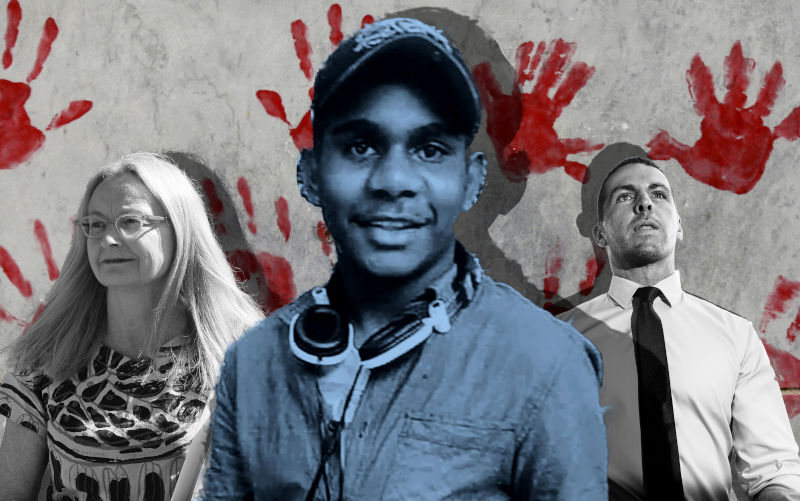
16 July 2025
Is Australia finally coming to terms with East Asia?
Comedy and economic development have one thing in common: timing is everything.

16 July 2025
Who's afraid of Donald Trump?
With his use of extreme tariffs to punish countries with trade surpluses, US President Donald Trump seems to be making an economic fool of himself.

16 July 2025
The Global South’s AI moment
If the Global South acts now, it can help build a future where algorithms bridge divides instead of deepening them – where they enable peace, not war.

Support our independent media
Pearls and Irritations is funded by our readers through flexible payment options. Choose to make a monthly or one off payment to support our informed commentary
Donate
16 July 2025
It’s time for another reforming and agitating attorney-general
Just last month Australia celebrated the 50th anniversary of the Whitlam Government’s Racial Discrimination Act (1975), without much fanfare it has to be said.

16 July 2025
The Israel lobby stands loudly condemned for its silence
Reflect for a moment, as you read this piece, what is happening in Gaza.

16 July 2025
What Australians think of Trump and the US
While the Murdoch media — and most of the pontificators writing op-eds for the rest of our news outlets — are having conniptions about whether and when Albanese might get a meeting with Trump, it comes at a time when the Australian public have little trust in the US and even less in Donald Trump.

16 July 2025
Systematic bias: how Western media reproduces the Israeli narrative
If words shape our consciousness, then the media holds the keys to minds.

16 July 2025
Humanity is ‘risking catastrophe’: UN
The full spread of the impending crisis facing humanity is, at long last, emerging into daylight with the publication by the United Nations of its 2025 Global Risks Report.

16 July 2025
More than 5,800 Gaza children diagnosed with malnutrition in June: UNICEF
Children's bodies are wasting away, the agency said. This is not just a nutrition crisis. It's a child survival emergency.

15 July 2025
Antisemitism in Australia: a 'pathology in our society'
There was much to read in the papers last Monday, the 7th of July. Three stories caught my attention.

15 July 2025
NYT report says Netanyahu prolonged war on Gaza to stay in power
He pressed ahead with the war in April and July 2024, even as top generals told him that there was no further military advantage to continuing, reports The New York Times.
Latest on Palestine and Israel

16 July 2025
The Israel lobby stands loudly condemned for its silence
Reflect for a moment, as you read this piece, what is happening in Gaza.

16 July 2025
Systematic bias: how Western media reproduces the Israeli narrative
If words shape our consciousness, then the media holds the keys to minds.

16 July 2025
More than 5,800 Gaza children diagnosed with malnutrition in June: UNICEF
Children's bodies are wasting away, the agency said. This is not just a nutrition crisis. It's a child survival emergency.

15 July 2025
NYT report says Netanyahu prolonged war on Gaza to stay in power
He pressed ahead with the war in April and July 2024, even as top generals told him that there was no further military advantage to continuing, reports The New York Times.

15 July 2025
Australian parliamentarians urgently need lessons in international law
As the new Parliament returns this month, it is timely to ask just how many Australian parliamentarians need urgent instruction in international law and how it impacts on government decision-making which complies with the United Nations rules-based order developed by the efforts of so many nations since 1945.

15 July 2025
'No' to Jillian Segal's antisemitism action plan
Representing Jews Against the Occupation ’48 (JAO48), I would like to share our response to Jillian Segal’s “antisemitism action plan”. In short: we reject it.

14 July 2025
Antisemitism Plan sparks fierce debate over free speech, racism, and political agendas
At a press conference in Sydney on Wednesday 10 July 2025, the Special Envoy to combat antisemitism, Jillian Segal, together with Prime Minister Anthony Albanese and Home Affairs Minister Tony Burke launched the National Action Plan to Combat Antisemitism in order to address antisemitic hate, especially in the wake of intensified community tensions following the war in Gaza.

13 July 2025
Kostakidis to go before court, after judiciary recognises anti-Zionism is not antisemitism
Mary Kostakidis should hold her head up high right now, because of all the Australian journalists who are honestly calling out the holocaust that Israel is perpetrating against the Palestinians.

Israel's war against Gaza
Media coverage of the war in Gaza since October 2023 has spread a series of lies propagated by Israel and the United States. This publication presents information, analysis, clarification, views and perspectives largely unavailable in mainstream media in Australia and elsewhere.
Download the PDFLatest on China

12 July 2025
Albanese’s visit to China is a moment for statesmanship
Membership of the Chinese Communist Party has just exceeded 100 million. It has long been the largest political party in world history.

12 July 2025
Albanese’s China mission – managing a complex relationship in a world of shifting alliances
Prime Minister Anthony Albanese leaves for China on Saturday, confident most Australians back the government’s handling of relations with our most important economic partner and the leading strategic power in Asia.

12 July 2025
US, China and Australia – an open letter to the PM
Dear PM Albanese, on Monday 30 June, the Chinese Ambassador to Australia, Xiao Qian, had a letter published in The Australian entitled China and Australia are friends, not foes. This should never have been in question. It’s best to read the full version on China’s Embassy website.

Support our independent media with your donation
Pearls and Irritations leads the way in raising and analysing vital issues often neglected in mainstream media. Your contribution supports our independence and quality commentary on matters importance to Australia and our region.
DonateMore from Pearls and Irritations
Latest letters to the editor
Segal's imports
Steve M — Brisbane, QLD
Neither antisemitic nor anti-Jewish
Hal Duell — Alice Springs
The correspondence has been retained, Margaret
Geoff Taylor — Borlu
Renewable foods offer survival and peace
Chris Young — Surrey Hills, Vic








